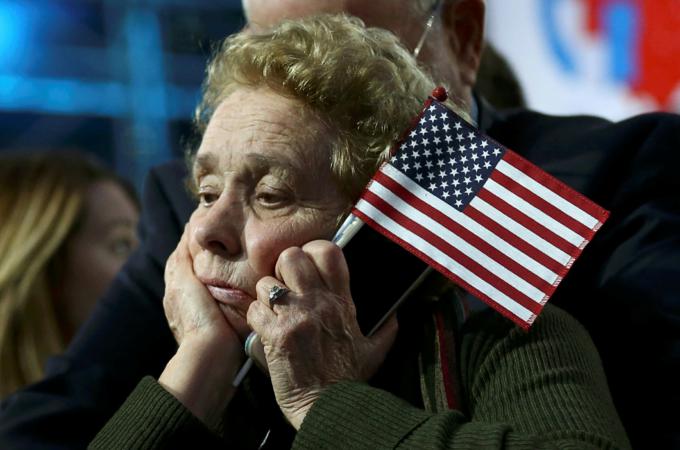One Christian's view of politics
With the election of Donald Trump as president, we have just experienced the greatest political upset in American history. The pundits, the polls, and the media all got it wrong; and with the surprising election of a man with neither a political nor military background, the American people have elected someone who lost the popular vote but handily won the electoral vote for President of the United States. We are obviously a divided and politically polarized country -- not an easy job for anyone to lead in the spirit of "e pluribus unum."
It is not surprising, then, that many of us are upset at this amazing upset. Some are frightened; some apparently feel empowered now to openly express various forms of racial, ethnic, political and religious bigotry -- all of which is upsetting. I did not vote for either of the major candidates, thinking them both to be somewhat deficient in requisite moral character. I wrote in a friend of mine, a former law student, who met the constitutional age requirement (35) and is quite honest, but who obviously had no chance of being elected. That being said, I hope I was wrong about the president-elect, and that he really can succeed in making America great again, whatever that actually means.
At the same time, I have many family members, students and friends who are NeverTrumpers, and they say things like "not my president -- not now, not ever." I also have friends who were avid Trump supporters, but they don't need consolation at this moment of their victory. I happen to be one of those who love the musical "Hamilton," but also love our new vice-president-elect Mike Pence. I am heartened when I see the president-elect trying to behave himself (relatively speaking), and meeting with political opponents like Mitt Romney.
Some thoughts: This is just politics. You win some; you lose some. Get used to it. The problem for many is that they invest a religious fervor into their politics, and, unlike what the Bible warns against, put their faith in princes.
Last weekend, in welcoming a new batch of cardinals to the Church, Pope Francis had some interesting things to say, which are salutary for our present predicament: "My enemy is someone I must love. God only has sons and daughters. We are the ones who build walls (says the chief bridge-builder, or "Pontifex Maximus"), build barriers and label people. ...God's love has the flavor of fidelity towards everyone, for it is a visceral love, a parental love that never abandons us, even when we go astray. ...We live in a time in which polarization and exclusion are burgeoning and considered the only way to resolve conflicts. ...Little by little, our differences turn into symptoms of hostility, threats and violence." And this is true of both sides of our national debate. Indeed, both sides have their extremists and crazies.
As Abraham Lincoln, our greatest of presidents in my humble opinion, said in his magnificent Second Inaugural, just as our greatest civil and culture war was winding to a close and shortly before he was assassinated by one of the crazies: "With malice towards none, with charity for all, with firmness in the right as God gives us to see the right, let us strive on to finish the work we are in, to bind up the nation's wounds, to care for him who shall have borne the battle and for his widow and his orphan, to do all which may achieve and cherish a just and lasting peace among ourselves and with all nations."
The challenges of the present day are great. None of us has a monopoly on wisdom or virtue. With mutual goodwill, a lot of good can be accomplished for our beloved country and world. Or, as the Wall Street Journal more modestly advises, at least "have a Thanksgiving dinner without a family blowup: Learn to listen; don't interrupt."
- Dwight G. Duncan is professor at UMass School of Law Dartmouth. He holds degrees in both civil and canon law.



















